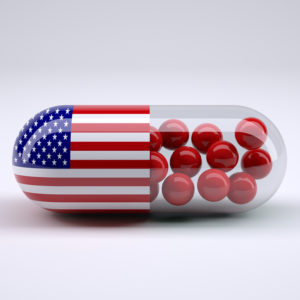Americans pay significantly more for prescription drugs than patients in other wealthy nations.
President Trump thinks this price gap is unfair — and he’s correct. To shrink this disparity and make drugs cheaper for Americans, the Trump administration is considering a rule that would change how Medicare pays for drugs. The administration is also pondering allowing certain government-appointed officials to unilaterally reduce Medicare drug payment rates.
Neither of these proposals is a real solution. Both are gimmicks that would deprive American patients of vital medications without holding foreign governments accountable.
If President Trump is serious about helping patients, he’d be better off appointing a special pharmaceutical negotiator to the Office of the U.S. Trade Representative, whose sole task would be to end foreign freeloading.
The administration is right to be concerned about foreign freeloading. America pays 80 percent more, on average, than most developed countries for the exact same advanced drugs.
This price disparity exists because countries like Canada and the United Kingdom have socialized medical systems. They allow bureaucrats to set artificially low prices for drugs. If U.S. companies don’t accept these dictated prices, foreign governments simply refuse to authorize the sale of those drugs.
Government-run health care carries a huge downside. Canadian patients had access to fewer than 60 percent of new cancer drugs launched between 2011 and 2018, while American patients had access to 96 percent. Drug companies can only access foreign markets by accepting their government-set, unfairly low prices.
The administration plans to propose a rule to make foreign countries pay their fair share. The rule would tie Medicare payments to the prices paid in other developed countries which impose price controls.
In theory, this reform would pressure drug companies to raise prices abroad to offset the lower revenues they’d earn in America.
But in practice, without the full might of the U.S. government behind them, drug companies wouldn’t be able to extract higher revenues from foreign governments. Those governments already deny citizens access to drugs and medical care they deem too expensive; there’s no reason to think officials would suddenly change their ways.
Rather than counteracting foreign price controls, the administration’s proposed rule would import them stateside.
The administration is also reportedly considering another major change called “binding arbitration.” Today, Medicare drug prices are determined by private negotiations among pharmaceutical companies, insurers, hospital groups, and doctors. Sometimes, these negotiations hit a wall.
Binding arbitration purports to offer a way to resolve these disputes. If the federal government and a drug company couldn’t agree on a price, Medicare officials would have government-appointed arbitrators intervene. After a pharmaceutical company makes the case for its preferred price, and Medicare officials make the case for their preferred, lower price, the arbitrator would set a final, legally binding price.
Arbitrators would almost always side with the government officials who appointed them. That means setting prices well below fair market value — just as routinely happens in socialized-medicine countries.
Much like importing foreign price controls, binding arbitration would eliminate the economic incentives for drug research and slow the development of future cures.
Drug development is expensive. It takes $2.6 billion over the course of a decade or more to create a single new drug. Drug companies rely on revenue from their products to recoup these investments and fund future research. Because the United States fairly values drugs, Americans pay more for medicines — and shoulder the lion’s share of research costs.
Importing price controls may lower prices for American patients in the short-term. But it would also cut off funding for R&D. In the long run, that would do more harm than good.
The president could crack down on foreign freeloading without deterring R&D spending by appointing a special trade negotiator and tasking him with two objectives.
First, ensure that foreign governments protect American intellectual property. Currently, if a U.S. drug maker refuses to give in to a foreign government’s price controls, foreign officials sometimes look the other way as their domestic companies steal the American firm’s drug designs. Often, drug makers give in to price controls just to keep their intellectual property safe.
Second, push other countries to fairly value medicines, giving drug innovators equal footing in what today are negotiations heavily weighted in foreign governments’ favor. This would help distribute drug costs more equitably across nations, instead of forcing Americans to pick up most of the tab.
The president wants to end the foreign freeloading that has “rigged the system against American consumers.” That’s a noble goal. But price controls aren’t the solution. A dedicated pharmaceutical trade official could put an end to global free-riding and give Americans a fair shake.

